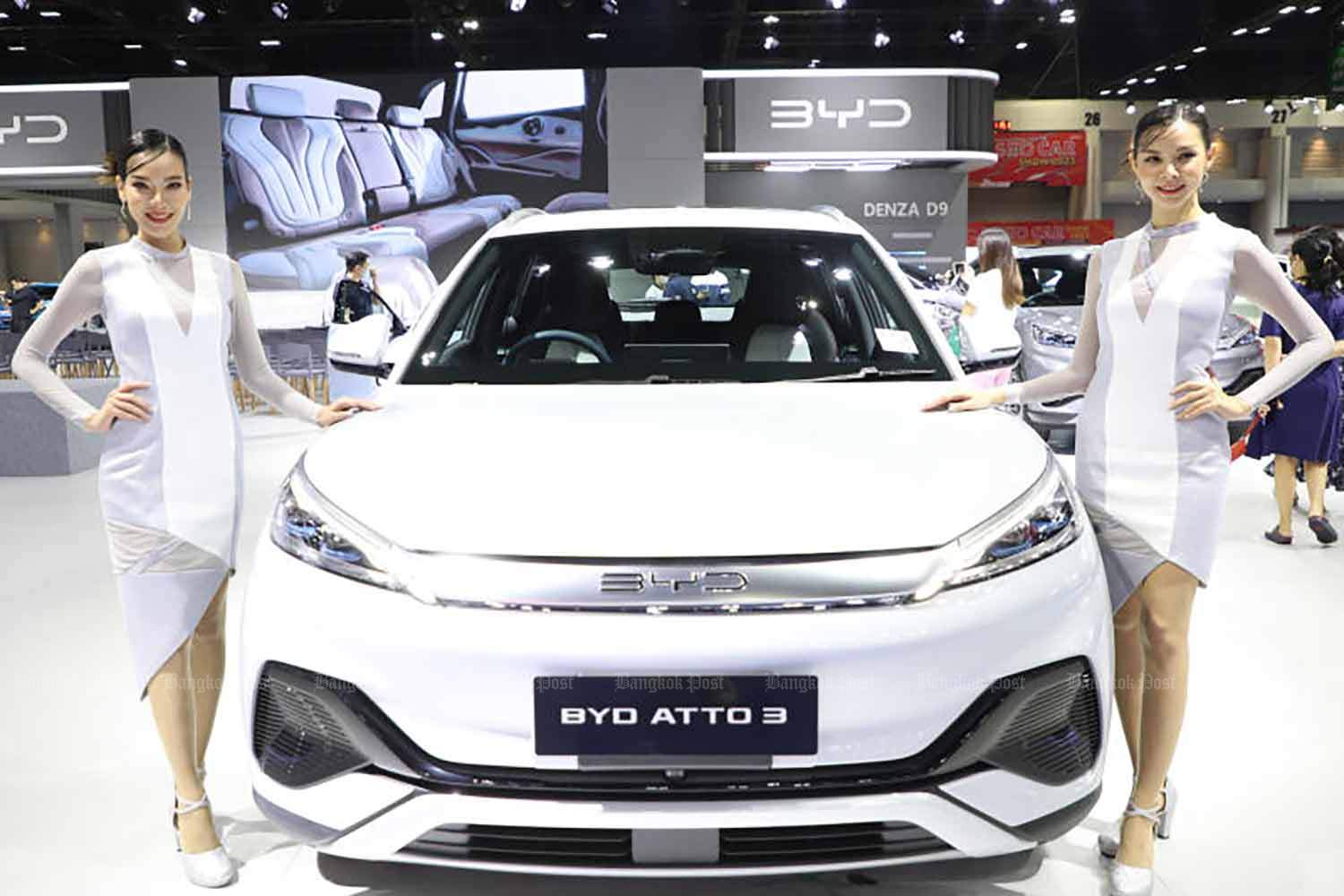
The ongoing price war in China's automobiles market is likely to continue as previous rounds of heavy discounts have failed to spur sales, dimming the earnings outlook for most of mainland China's carmakers.
Budget-conscious consumers are still reluctant to make purchases, as they expect further price reductions to be offered by carmakers looking to clear their inventories.
The risk of further price competition has not been fully eliminated, Fitch Ratings said in a research note on Tuesday, because key carmakers - particularly electric vehicle (EV) makers such as BYD - are struggling to meet lofty sales goals they set for this year.
"The price war in April disrupted the market order," said Yale Zhang, managing director at the consultancy Automotive Foresight in Shanghai. "Unfortunately, the price drops did not translate into increases in deliveries. The numbers have hurt carmakers' confidence in future sales."
Most Chinese EV makers forecast a 60% year-on-year growth in sales for 2023.
"A bullish forecast is one thing, but consumers are not spending at the moment," said Tian Maowei, a sales manager at Yiyou Auto Service in Shanghai. "Carmakers and dealers are facing a dilemma - either slash prices further to buoy sales, or stop offering discounts, which could lead to a sharp drop in sales."
According to UBS analyst Paul Gong, EV sales in China, which is also the world's largest market for battery-powered vehicles, are expected to hit 8.8 million units this year, 35% higher than last year.
Tesla spearheaded the price war by offering huge discounts on its Shanghai-made Model 3s and Model Ys twice since October last year. Following a price cut in early January this year, the prices of its cars hit their lowest levels since the US carmaker's Gigafactory 3 began operations at the end of 2019.
Xpeng, BYD and Aito, an EV brand backed by telecommunications equipment maker Huawei Technologies Co, followed suit. The manufacturers of conventional cars and EVs, such as Volkswagen's mainland Chinese ventures and Dongfeng Honda Automobile, also cut prices to reduce inventory.
BYD, the world's largest EV maker, joined the price war in March by offering discounts of up to 20,000 yuan (US$2,888) on its Dynasty series.
But the price cuts have done little to improve sales. In April, the retail sales of pure electric and plug-in hybrid vehicles in China slid 3.6% from a month earlier to 527,000 units, according to the China Passenger Car Association.
The price war will last until July, according to a forecast by David Zhang, a visiting professor at Huanghe Science and Technology College. At this point, some companies facing low profit margins will have to stop offering discounts.
"New-energy vehicles now have relatively less room for further price reductions," he said, adding that the market would eventually return to normal because the demand for battery-powered vehicles remains strong in the long term.
Shenzhen-based BYD, which is backed by Warren Buffett's Berkshire Hathaway, reported in late April that its net profit between January and March fell to 4.13 billion yuan from an all-time high of 7.3 billion yuan in the fourth quarter of 2022. The drop ended a three-quarter winning streak for profits, which have been buoyed by surging sales of battery-powered cars.
Beijing-based Li Auto, which makes premium EVs, however, bucked the downward trend. It reported a net profit of 933.8 million yuan for the first three months of this year, compared to a net loss of 10.9 million yuan for the same period last year.
In April, it became the first Chinese home-grown premium EV maker to deliver more than 25,000 units in a single month. Its 25,681 deliveries also represented a more than fivefold increase from a year earlier.
During the first quarter, it raked in 18.79 billion yuan in sales, nearly double the number recorded a year earlier, beating a median forecast of 18.68 billion yuan in a Bloomberg survey of analysts.
Fitch said Chinese EV makers are benefiting from falling battery costs, as the prices of raw materials have dropped substantially. From January to March, the domestic prices of battery-grade lithium carbonates declined by 27% quarter on quarter, it added.







